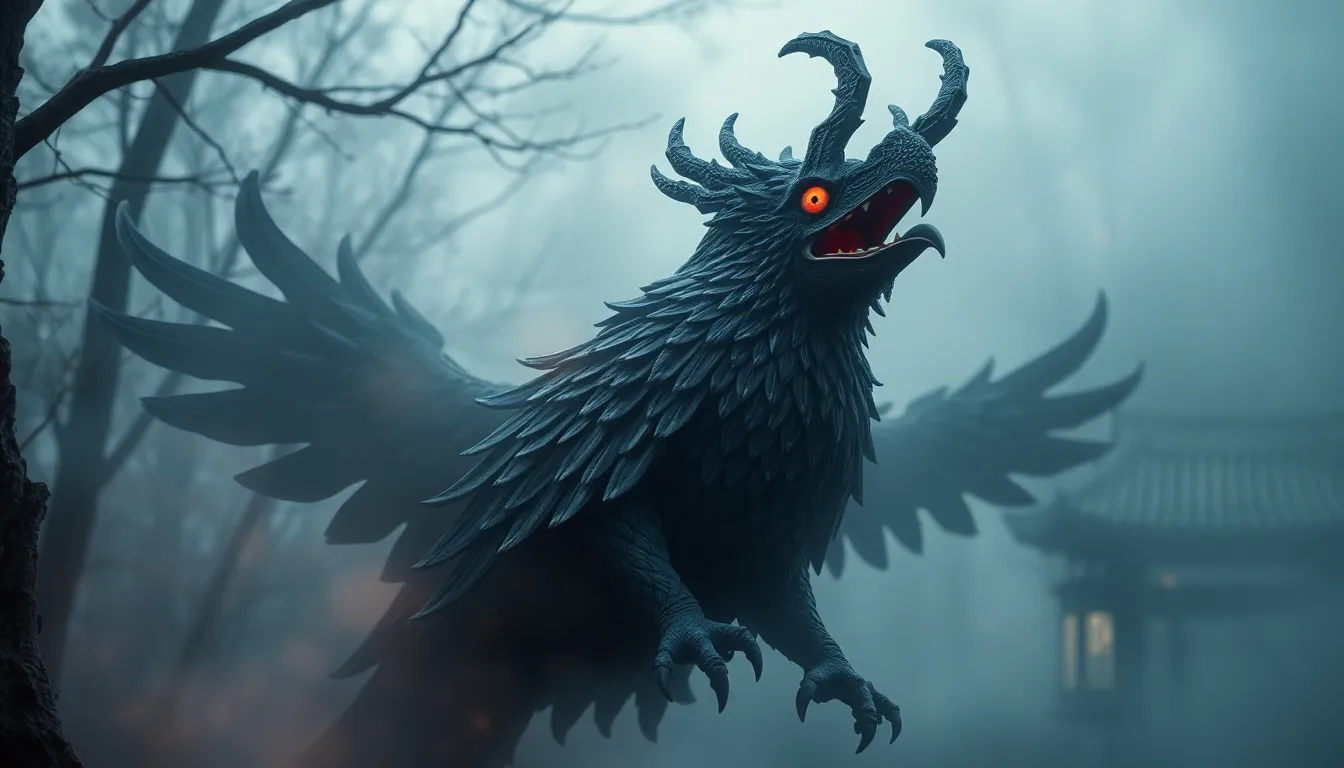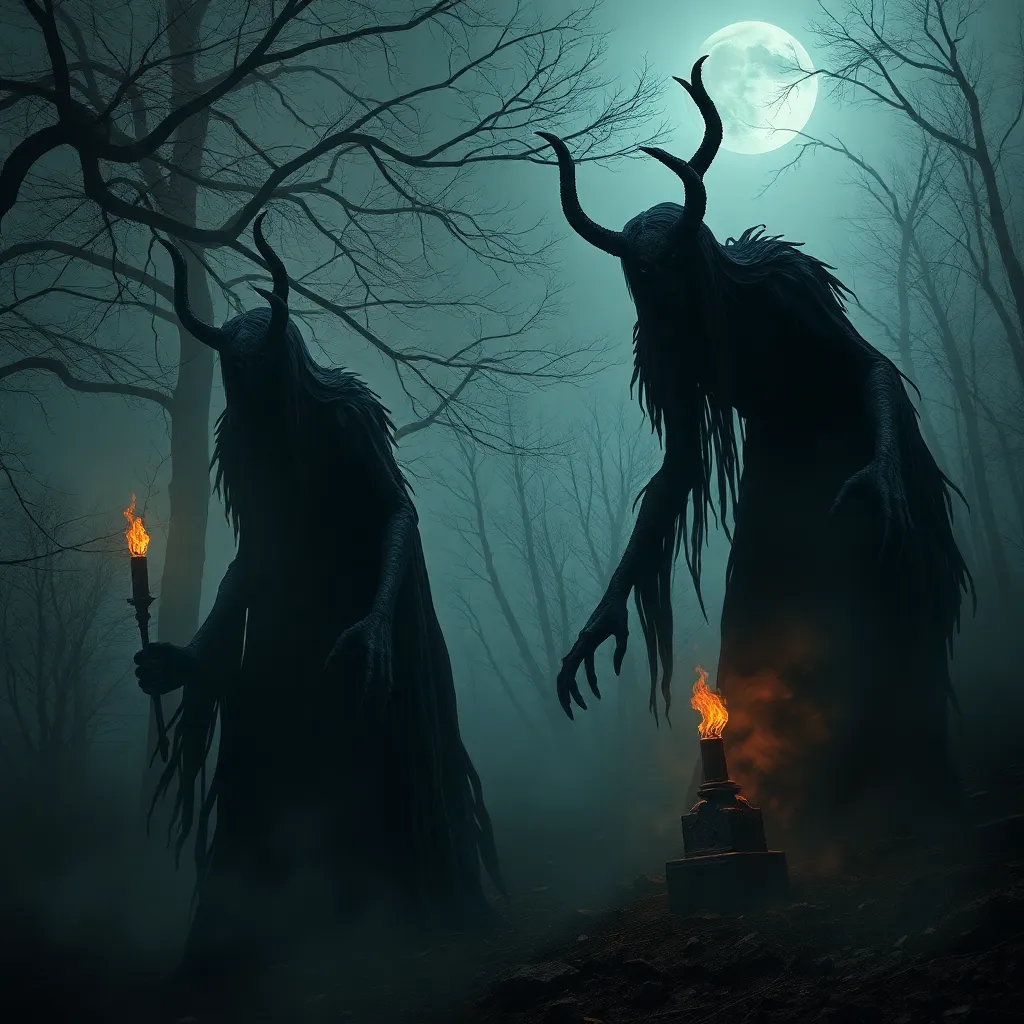The Spirits of the Forest: Exploring the Lore of the Japanese Tengu
I. Introduction to Tengu
The Tengu is a fascinating and complex figure within Japanese folklore, often regarded as a supernatural creature that embodies both human and avian traits. Recognized for their mischievous yet protective nature, Tengu have captured the imagination of many throughout the centuries.
Characterized by their long noses, red faces, and sometimes bird-like features, Tengu are often depicted as skilled warriors, adept in martial arts and possessing supernatural powers. Their significance in Japanese culture extends beyond mere folklore, serving as symbols of nature’s power and the balance between humanity and the wild.
This article aims to delve into the rich lore surrounding Tengu, exploring their historical origins, physical characteristics, cultural significance, and their role in both historical and modern contexts.
II. Historical Origins of Tengu
The origins of Tengu can be traced back to early Japanese myths and legends. Initially thought to be a type of mountain spirit or deity, Tengu were often associated with the ancient belief systems of Japan.
Over time, the representation of Tengu evolved dramatically. In the Heian period (794-1185), Tengu were often depicted as protectors of the mountains, while by the Kamakura period (1185-1333), they had transitioned to more mischievous figures, sometimes even antagonistic to humans.
The influence of Buddhism and Shinto played a significant role in shaping Tengu lore. With the arrival of Buddhist teachings, Tengu began to be associated with wisdom and enlightenment, while Shinto beliefs emphasized their connection to nature and the spirit world.
III. Physical Appearance and Variants of Tengu
Tengu are commonly depicted in various forms in art and literature, often characterized by:
- Long noses
- Red faces
- Feathered or bird-like features
- Traditional Japanese clothing, such as the kimono or samurai armor
There are several distinct types of Tengu, including:
- Karasu Tengu: Often depicted as crow-like creatures, these Tengu are known for their cunning and intelligence.
- Yamabushi Tengu: These Tengu resemble ascetic monks and are believed to have attained great spiritual power through their practices in the mountains.
- Other Variants: Various regional interpretations exist, often reflecting local beliefs and customs.
The features and attire of Tengu carry deep symbolism, representing their connection to both the spiritual and natural worlds. Their bird-like elements reflect their role as messengers and guardians of the skies.
IV. Tengu in Japanese Culture
Tengu have made significant appearances in traditional Japanese theater, particularly in Noh and Kabuki. These performances often portray Tengu as both heroic figures and tricksters, embodying the duality of their nature.
In literature and folk tales, Tengu stories frequently highlight themes of strength, wisdom, and the consequences of hubris. Classic tales such as “Tengu no Kawa” teach moral lessons, often illustrating the importance of humility and respect for nature.
Local festivals and customs also celebrate Tengu, with many communities holding events that honor these spirits. Tengu masks and representations can often be found in traditional celebrations, symbolizing their protective qualities.
V. Tengu’s Role in Nature and the Environment
As guardians of the mountains and forests, Tengu play a crucial role in maintaining the balance of nature in Japanese folklore. They are often perceived as protectors of wildlife, ensuring ecological harmony.
Folklore surrounding Tengu emphasizes their connection to nature, with stories depicting them as wise beings who guide lost travelers and safeguard the wilderness. This aspect of Tengu lore highlights the importance of respecting the environment and understanding humanity’s relationship with nature.
VI. Tengu in Modern Media
In contemporary culture, Tengu have found new life in various forms of media, including anime, manga, and video games. They are often portrayed as powerful characters, reflecting their historical significance and mystique.
The influence of Tengu extends beyond Japan, inspiring global pop culture with their unique design and characteristics. Merchandise featuring Tengu motifs has become increasingly popular, appealing to both domestic and international audiences.
Tourism around Tengu-related sites, such as temples and shrines dedicated to them, has also seen growth, allowing people to explore the lore while experiencing the beauty of Japan’s natural landscapes.
VII. The Symbolism of Tengu in Spirituality and Philosophy
Tengu serve as messengers between the human and spiritual realms, embodying the idea of transformation and enlightenment. They symbolize the journey toward self-discovery and the balance between the material and spiritual worlds.
Lessons derived from Tengu stories often emphasize virtues such as humility, respect for nature, and the importance of personal growth. Through their adventures and interactions, Tengu remind us of the complexities of life and the wisdom gained through experience.
As symbols of transformation, Tengu encourage individuals to embrace change and seek enlightenment, making their lore relevant in both historical and modern contexts.
VIII. Conclusion
The significance of Tengu in Japanese culture is profound, reflecting a rich tapestry of beliefs, traditions, and values. From their historical origins to their modern interpretations, Tengu continue to evolve, adapting to the changing cultural landscape.
The ongoing fascination with Tengu showcases their enduring impact on cultural identity and spirituality. As we explore Tengu lore, we gain insight into the intricate relationship between humanity and the natural world, and the lessons that can be learned from these enigmatic spirits of the forest.
In conclusion, the exploration of Tengu serves as an invitation to delve deeper into the cultural heritage of Japan and to appreciate the stories that shape our understanding of the world around us.



